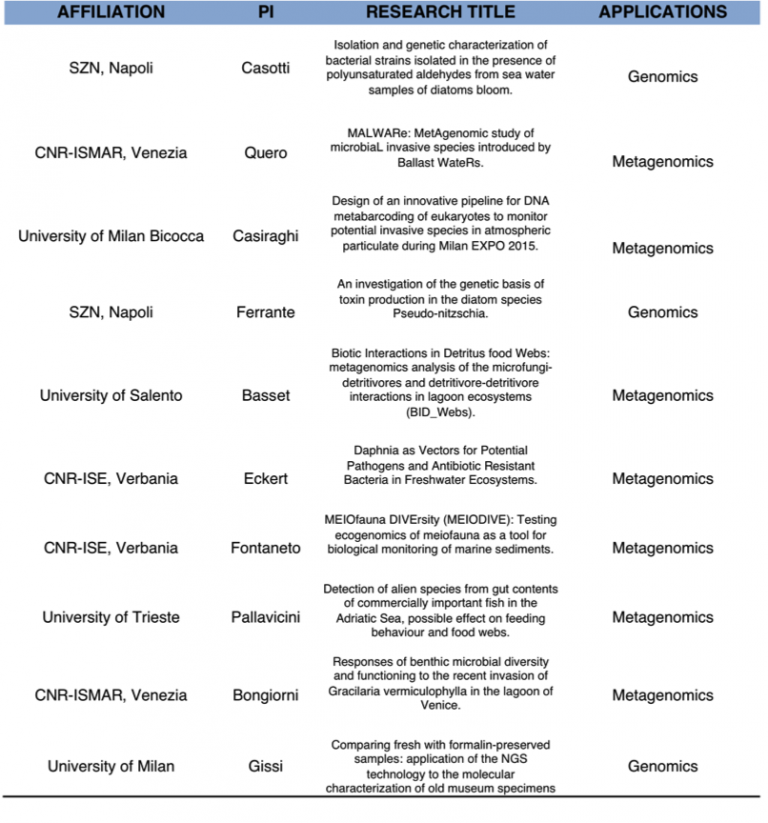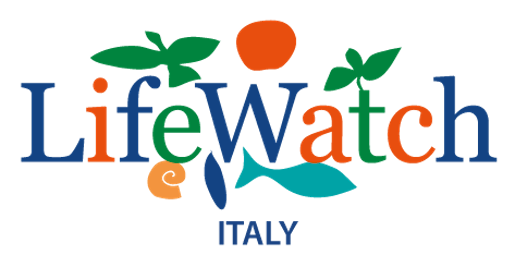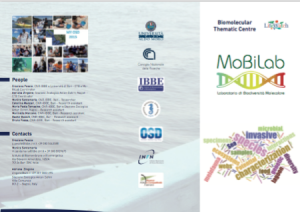The Biomolecular Thematic Centre (MoBiLab – Molecular Biodiversity Laboratory) integrates expertise and advanced infrastructure for molecular and bioinformatic analyses with the aim of providing the scientific community with services and support for the study of biodiversity data. Specifically, the Centre provides access to tools for analysing genomic, metagenomic, phylogenetic, phylogeographic and DNA barcoding data, and to databases specifically structured to allow integrated access to molecular information and associated metadata.
Long-term goals
The long-term objectives of MoBiLab include the establishment of consolidated services for the analysis of Molecular Biodiversity data and support for their production. These services will provide valuable tools for the assessment of phenomena concerning entire ecosystems or individual populations which will be useful for drawing up monitoring and management strategies. In the following the services that will be available:
- design and application of meta-barcoding and shotgun protocols based on high-throughput sequencing (HTS) technologies;
- tools for comparative analyses of metagenomes and metatranscriptomes associated with different environments and conditions;
- tools for molecular and bioinformatic analyses of free-living and symbiotic prokaryotic communities;
- tools for molecular and bioinformatic analyses of eukaryotic communities;
- tools for molecular and bioinformatic analyses of genomes and transcriptomes from prokaryotes and eukaryotes;
- access to specialised Molecular Biodiversity databases.
A bioinformatics infrastructure for storing and analysing molecular data, produced by LifeWatch and collected from public databases, is currently under construction on the basis of a specific case study of alien species in terrestrial and aquatic sites in Italy. In the near future, this resource will be made available for more general use.
Ocean Sampling Day (OSD): in the framework of OSD, the Centre has provided expertise in sampling and high-throughput sequencing (HTS) of eukaryotic plankton at the marine sites under study. Based on data collected in the OSD 2014, a project regarding the efficiency of different genomic regions (i.e. the hypervariable regions of the 18S rRNA) in taxonomic assessment has been proposed. Moreover, a reference database of toxic microalgae, required for meta-DNA barcoding analysis, is currently under construction and is being tested with the OSD dataset. The Centre participates to Citizen and Science MyOSD initiative. With the Citizen Science MyOSD initiative, in 2015 also citizens were involved in the OSD scientific campaign of 21 June. The Stazione Zoologica Anton Dohrn, as MyOSD-Hub, distributed sampling kits with which citizens will contribute, together with scientists, to a deeper understanding of the oceans’ microbes.
Elixir: Elixir aims at building a sustainable European infrastructure for biological information, supporting life science research and its translation to medicine, agriculture, bioindustries and society. MoBiLaB is mainly involved in marine Metagenomics WP 6 of the EXCELERATE project within the ELIXIR RI framework.
Genomic and Metagenomic Ready-to-use Tools & Services:
- BioMaS (Bioinformatic analysis of Metagenomic AmpliconS): Meta-barcoding Data Analysis (http://recasgateway.ba.infn.it/web/guest/biomas. It requires an account, interested users may ask for the creation of a BioMaS account sending a request to recas@lists.ba.infn.it)
- MetaShot: Shotgun Metagenomic Data Analysis (here the link to the paper that includes all relevant links)
- MSA-PAD Multiple Sequence Alignment based on PFAM accessed domain information (http://recasgateway.ba.infn.it/web/guest/msa-pad, http://www.myexperiment.org/workflows/4549.html, http://www.myexperiment.org/workflows/4551.html).
- ITSoneDB: a comprehensive collection of ribosomal RNA cluster Internal Transcribed Spacer 1 (ITS1) sequences aimed at supporting metagenomic surveys of fungal environmental communities (http://itsonedb.ba.itb.cnr.it).
- DataRetrieval: DNA barcode sequence and Metadata Retrieval, a RESTful service able to query Public DNA barcode databases and extract the relevant data and metadata corresponding to a given taxon (in progress)
- Molecular Biodiversity Thesaurus (in progress)
Call for investigating alien and invasive species through NGS data production and analysis
Lifewatch-Italy Call for interdisciplinary research projects at the distributed Laboratory of “Molecular Biodiversity”:
In April 2014, the Biomolecular Laboratory in LifeWatch Italy (CTB-MoBiLab – Molecular Biodiversity Lab) launched a call for projects that include the production of molecular data through High Throughput Sequencing (HTS) technologies and their analysis in order to promote the research in the field of Molecular Biodiversity as well as the multidisciplinary integration of the Italian groups interested in biodiversity research at different levels.
The call was open to projects focusing on alien or invasive species and/or their impact on indigenous communities and interactions among species, lead and coordinated by researchers within Italian Institutions participating in LifeWatch-Italy. For the projects positively evaluated by a commission of foreign reviewers coordinated by Prof. Graziano Pesole, the Laboratory of Molecular Biodiversity of CNR in Bari provided the human and infrastructural resources to perform the sequencing and the required analyses according to modes and times indicated in the projects.
The table below provides information on the funded projects.

- Cooperation with the ICT Working Group in structuring and maintaining the infrastructure for storing and providing Molecular Biodiversity data and associated metadata.
- Exploration of additional data and resources arising from new case studies in the field of Molecular Biodiversity, progressive and continuous integration of such data and updating of the infrastructure.
- Feedback and data collection from stakeholders in order to optimise the infrastructure based on their needs.


